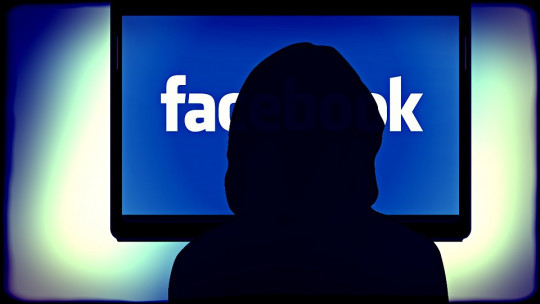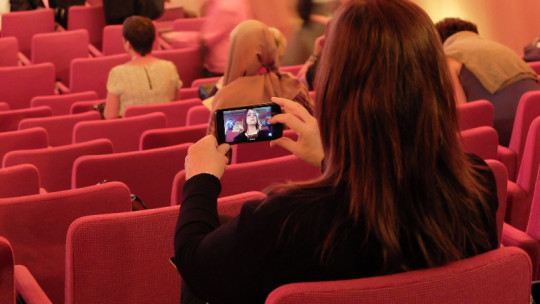
romantic networks begins by conjecturing, through the example of the film You’ve Got Email (1998), that cyber romances, by breaking away from “the limitations of bodily interactions (…), would allow a more complete expression of the authentic self.”
But if it were the case that the Internet nullified the body, one might wonder what possibility there is of experiencing through technological means emotions (romantic or not) that are inseparable from the body. The third of the conferences that make up Frozen Intimacies deals with this question.
Romantic networks and dating websites
Based on the constant increase in users of dating websites, we understand how economically profitable these paid online content are. But What is the way in which these websites operate?
Dating websites ask users to create a profile through a questionnaire that aims to reveal each person’s personality in order to facilitate compatibilities. “Thus, for the purposes of knowing a virtual other, the self is required to go through a vast process of reflective self-observation, introspection, self-classification, and articulation of tastes and opinions.” Consequently, participation in interpersonal compatibility websites implies at least three psychological assumptions:
- The construction of the self from a sum of categories related to taste opinion, personality and temperament.
- The conversion of the private self into a public representation
- The textualization of subjectivity through externalizing and objectifying the self from representation and language supports.
In turn, the consequences that arise from transit through cybernetic devices of emotional compatibility are:
- Knowledge of oneself as precedes an awareness of the other.
- Knowledge of the other’s personality precedes the physical attraction that one has towards him.
- The encounter between people is carried out based on the liberal paradigm of “choice”.
- Each person is in competition with others in the open market that is the dating website.
Cybernetic disembodiment
The author maintains that the body, absent in the rational logic of cybernetic relationships, is the greatest repository of sexual attractiveness that a person possesses, since a transmission of attraction will come from the tone of voice or gestures that are incapable of being recognized through the rational procedures that operate through the web in the exchange of disembodied textual information.
On the other hand, by incompletely expressing the reality of the loved personthe body allows the idealization of the person it loves to unconsciously unfold around it Therefore, we can hardly love in the absence of an existential context that involves us with the loved one.
This is why the Internet increases the gap between expectations and experience, since romantic love is mobilized when the person who loves, not having all the information about the loved person, but mainly the information offered by his or her body (“knowledge contextual and practical”), idealizes the latter through imagination.
On the contrary, since dating websites have a file of the users’ characteristics, there is no longer anything absent that the imagination is romantically responsible for making present.
The uniform management of abundance
Likewise, the disembodiment that the Internet demands is compensated by, on the one hand, a frozen image through the photographic medium that shows our beauty “in a competitive market of similar photographs,” and, on the other hand, a series of linguistic conventions. that facilitate mediation between people who interact cybernetically.
With respect to this second point, it should be said that, due to the large number of diverse contacts, the interaction is conveyed through standardized rituals (presentations, questions, jokes, conversation topics, etc.) and reproduced “over and over again during their meetings via the Internet.”
This is how the linguistic elements that mediate between contacts are standardized in a limited repertoire. In this way, the self-representation of singularity that allows one to create a profile tailored to oneself, paradoxically, is suspended by the uniformity that requires the use of attributes that, on the one hand, are conventionally considered positive, and that, on the other hand, , make it easier to manage numerous different interactions.
The economizing management of abundance
Dating websites use psychological categories to maximize and sophisticate encounters between users within the logic of consumerism, despite the fact that romanticism fades in the calculation, and everything that is unexpected and ineffable in love becomes the product. of a rational choice as a consequence of accumulated knowledge about the attributes of the other.
It is in this sense that Illouz affirms that “the spirit that presides over the Internet is that of the economy of abundance, in which the self must choose and maximize its options and is forced to use cost-benefit and efficiency techniques.” Consequently, the interaction loses its surprising aura and, with it, its charm and magic. This is how “the Internet literally structures the search for a partner as a market or (…) as an economic transaction: it transforms the self into a packaged product that competes with others in an open market regulated by the law of supply and demand.”
It seems as if the rationality that operates in the psychological technologies of emotions divides the self between a public sphere in which representations of oneself are commodified and a private sphere imprisoned by fantasies subjected to the requirements of a market without body heat.
Illouz, Eva. (2007). Frozen Intimacies. Emotions in capitalism. Katz Editores (p.161-237).








